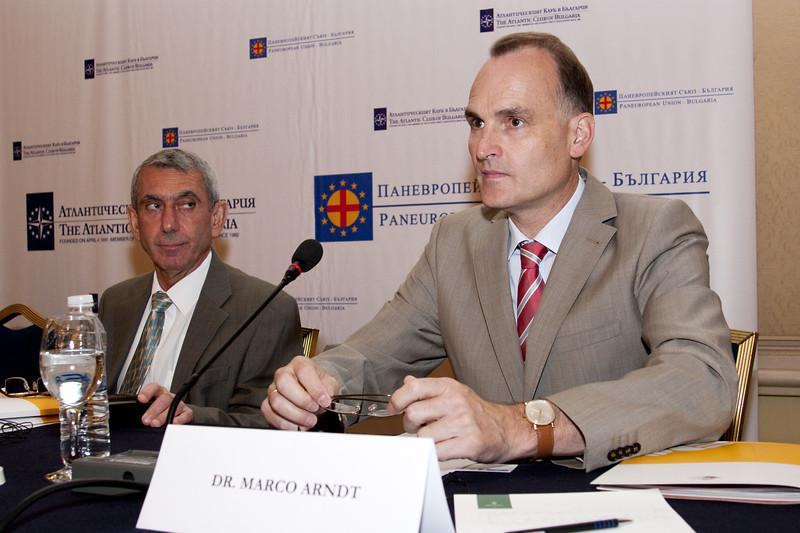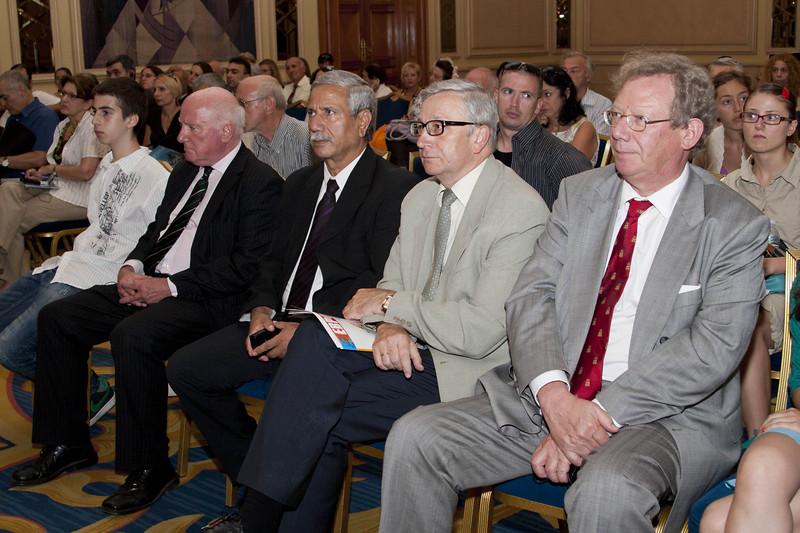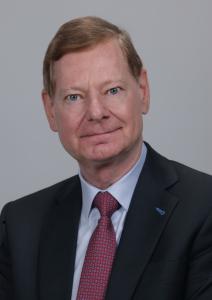Доклади за събития
“EU during the Cyprus presidency and the priorities in the development of the Bulgarian regions 2014-2020”
PanEurope-Bulgaria, together with the Atlantic club of Bulgaria and foundation “Konrad Adenauer”, organized a public lecture, named “EU during Cyprus presidency and the priorities in the development of the Bulgarian regions 2014-2020”. Special guests of the event were the Minister of the Regional Development and Public Works, Mrs. Lilyana Pavlova and the Ambassador of the Republic of Cyprus, H.E Stavros Amvrosiou. The President of PanEurope-Bulgaria, Mrs. Gergana Passy, and Dr. Marco Arndt of Konrad-Adenauer-Foundation opened the discussion. In his speech, H.E Stavros Amvrosiou underlined the priorities of the Cyprus Presidency of the Council of the European Union. He expressed the view that the EU needs closer cooperation and integration, stronger social cohesion and better life for the European citizens. During the Cyprus Presidency, the multiannual financial framework for the period 2014-2020 should be discussed. This framework is a basis for preliminary budget to be made which would contribute to sustainable economic growth, and also would increase the competitiveness of the EU and would create new jobs. Cyprus presidency will work for the advancement of the negotiations for the financial framework of the general policies, as for example the General agricultural policies, the Cohesion policy, together with the financial projects for the different sector policies. Another focus will be energy policy, trans-European transporting, communicational, and energy networks and the mechanism “Connected Europe”. In relation to the increasing level of unemployment amongst the youth in the Union, Cyprus Presidency will work hard for employment of the youth. Another priority concerns the European year of active aging and solidarity between generations, which focuses mainly on education and culture. This Presidency will work hard with the High Representative of the Union for Foreign Affairs and Security Policy, Catherine Ashton. The Minister of Regional Development and Public Works, Mrs. Lilyana Pavlova, introduced for the first time a public presentation regarding “Social-economic analysis of the development of the Bulgarian regions 2014-2020 and opportunities for overcoming the differences”. The integrated plans for urban development will be one of the main priorities under the operational program (OP) “Regional Development” for the next program period between years 2014 and 2020. This priority of urban development is due to the fact that 73% of the population of Europe is situated in the cities. The analysis shows that the North-West region (NWR) is with 30% lower GDP than the medium base of the EU. This requires implementation of straight-forward policy for development of this region in order to overcome the differences and inequalities. The North-West region is still the worst developed in relation to tourism. The main tourism product is still concentrated on the Seaside. The development of the tourism as a whole, and mainly the development of the cultural tourism, will be the leading priority under the next program period. Bulgaria spends small portion of the GDP for education. This puts Bulgaria on the bottom among the other member-states in relation to this investment. Statistics show that more and more Bulgarian younger people study abroad. In terms of health insurance, Bulgaria is situated on one of the first places, but in relation to the quality of the service, we are one of the last, as Mrs. Pavlova pointed out. The material base of the medical institutes is one of the worst in the EU, but on the other side, the quantity of beds is vast. Until 2020 the aim is to optimize the number of beds and priority would be the construction of institutes for further treatment, which are lacking at the moment. The most developed cities in Bulgaria are Sofia, Varna, Burgas, Stara Zagora and Plovdiv. These are also the engines of the Bulgarian economic growth, stated Lilyana Pavlova. The stats show that Montana, Vidin and Razgrad are the most undeveloped cities with regards to their social-economic growth. Veliko Turnovo, Gabrovo, Pazardzhik and Yambol are falling down, that is why their improvement becomes priority. Only four municipalities meet the requirements for city agglomerations – these are Sofia, Plovdiv, Varna and Burgas. Minister Pavlova stated that there are two possible ways of our regional politics – reducing the differences or development of centers for growth. She concluded that measures would be taken in relation to the second trend by concentrating efforts on big cities because there is a potential for social-economic growth. The lecture was followed by Q&A session.









